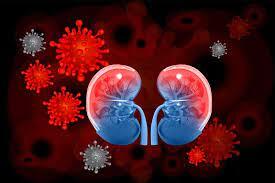In the intricate tapestry of our health, the connection between diabetes and kidney disease forms a critical thread. As we unravel the complexities of this interwoven relationship, it becomes clear that understanding and addressing both conditions is paramount. In this exploration, we will delve into the profound connection between nephrology and diabetes, shedding light on preventive measures, effective management strategies, and the role of institutions like the Pune Nephro Urology Institute in providing comprehensive care.
The Interplay Between Diabetes and Kidney Disease
Diabetes, a metabolic disorder characterized by high blood sugar levels, has far-reaching implications on various organs, and the kidneys are particularly vulnerable. The kidneys play a crucial role in filtering waste products and excess fluids from the blood, regulating electrolytes, and maintaining a balance of essential substances. Diabetes, when uncontrolled, exerts excessive pressure on these vital functions, leading to a cascade of complications.
- Diabetic Nephropathy: Diabetes is a leading cause of kidney disease, and the specific condition associated with kidney damage is known as diabetic nephropathy. Persistent high blood sugar levels damage the small blood vessels in the kidneys, impairing their ability to filter blood effectively.
- Increased Risk of Cardiovascular Disease: Diabetes and kidney disease share common risk factors, and individuals with diabetes are at an elevated risk of developing cardiovascular complications, further exacerbating the burden on the kidneys.
Preventive Measures: Nurturing Kidney Health in the Shadow of Diabetes
Prevention plays a pivotal role in averting the progression of kidney disease in individuals with diabetes. Implementing lifestyle changes and adhering to a proactive healthcare regimen can significantly mitigate the risk of kidney complications. Here are key preventive measures:
- Blood Sugar Management: Tight glycemic control is the cornerstone of preventing diabetic nephropathy. Regular monitoring of blood sugar levels and adherence to prescribed medications or insulin therapy are essential components.
- Blood Pressure Control: Hypertension is a common companion to diabetes and a major contributor to kidney damage. Controlling blood pressure through lifestyle modifications and antihypertensive medications is crucial in preserving kidney function.
- Healthy Lifestyle Choices: Adopting a healthy lifestyle, including a balanced diet, regular physical activity, and avoiding smoking and excessive alcohol consumption, contributes to overall metabolic health and reduces the risk of kidney complications.
- Regular Monitoring and Check-ups: Routine medical check-ups, including kidney function tests, are vital for early detection of any signs of kidney impairment. Regular monitoring allows healthcare providers to intervene promptly and implement appropriate management strategies.
Effective Management Strategies: Nephrology’s Role in Diabetes Care
When diabetes-related kidney disease is diagnosed, a multifaceted approach to management becomes essential. Nephrologists, specialists in kidney care, play a central role in developing and implementing effective strategies to preserve kidney function and improve overall health.
- Medication Management: Nephrologists may prescribe medications to control blood pressure, manage blood sugar levels, and address specific kidney-related issues. Medication regimens are tailored to the individual’s unique health profile.
- Dietary Modifications: A renal diet, which focuses on limiting certain nutrients such as sodium, phosphorus, and potassium, may be recommended to reduce the workload on the kidneys. This dietary approach complements overall diabetes management.
- Protein Management: Managing protein intake is crucial in diabetic nephropathy. Nephrologists carefully balance the need for protein to maintain nutritional status while avoiding excessive protein that can strain the kidneys.
- Dialysis and Transplantation: In advanced cases of diabetic nephropathy where kidney function is severely compromised, nephrologists may discuss options such as dialysis or kidney transplantation. These interventions aim to restore or replace lost kidney function.
Conclusion: Weaving a Tapestry of Health
In the intricate tapestry of metabolic health, the connection between diabetes and kidney disease forms a critical thread. Through proactive measures, effective management strategies, and the expertise of institutions like the Pune Nephro Urology Institute, individuals facing the challenges of diabetic nephropathy can weave a tapestry of health and well-being. As we navigate the complex interplay of these conditions, awareness, early intervention, and comprehensive care become the guiding principles in preserving kidney health and enhancing overall quality of life.

